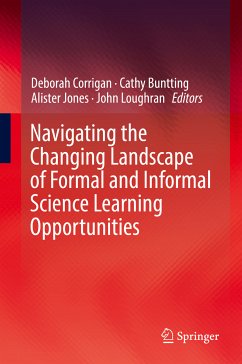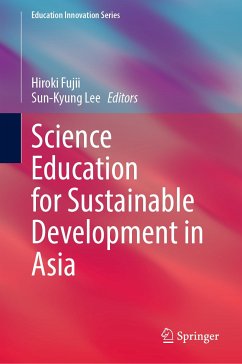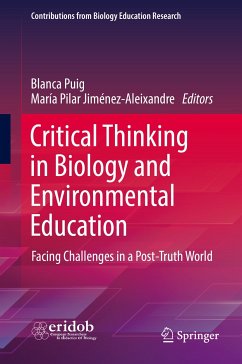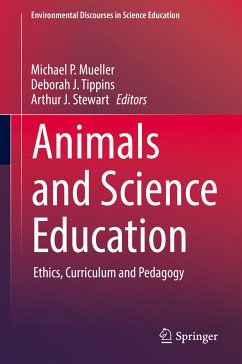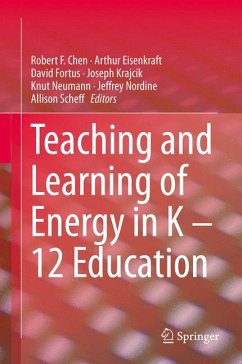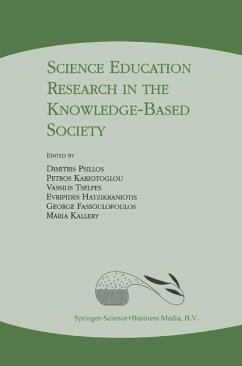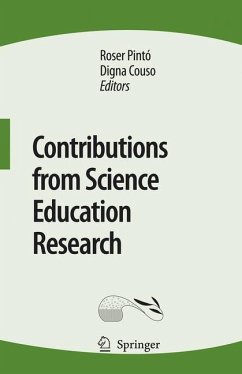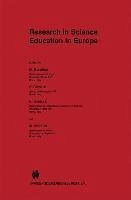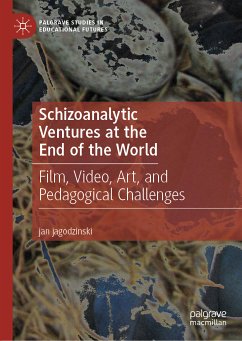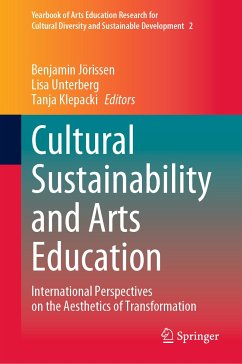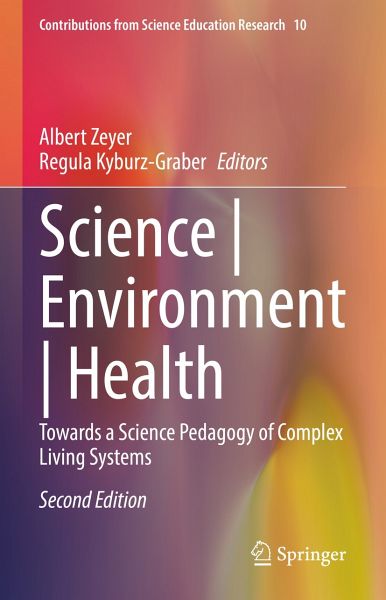
Science Environment Health (eBook, PDF)
Towards a Science Pedagogy of Complex Living Systems
Redaktion: Zeyer, Albert; Kyburz-Graber, Regula
Versandkostenfrei!
Sofort per Download lieferbar
72,95 €
inkl. MwSt.
Weitere Ausgaben:

PAYBACK Punkte
36 °P sammeln!
This book provides a fascinating insight into the on-going process of self- reflection in the Science Environment Health (S E H) community. The basic vision of a new S E H pedagogy is to establish a transdisciplinary dialogue between the three educational fields of science education, environmental education, and health education. This approach finds growing interest among science educators. Since 2014, the ESERA special interest group S E H has united both experienced and junior researchers all over Europe in a burgeoning research community. This book presents a selection of results of these v...
This book provides a fascinating insight into the on-going process of self- reflection in the Science Environment Health (S E H) community. The basic vision of a new S E H pedagogy is to establish a transdisciplinary dialogue between the three educational fields of science education, environmental education, and health education. This approach finds growing interest among science educators. Since 2014, the ESERA special interest group S E H has united both experienced and junior researchers all over Europe in a burgeoning research community. This book presents a selection of results of these vibrant activities. Systems theory has turned out to be a stimulating theoretical framework for S E H. The limits of predictability in complex living systems result in structural uncertainty for decision-making, and they ask for emphasising and rethinking the role of pedagogical concepts like informed citizenship and scientific literacy. They challenge crude scientific determinism inenvironmental and health education, which all too often ends up with students' eco- and health depression. Instead, S E H conceives coping with uncertainty in terms of an interplay between cognitive and affective factors. The horizon of the future remains always open. Hope must never die in a new S E H pedagogy.
Chapter 3 is available open access under a Creative Commons Attribution 4.0 International License via link.springer.com.
Dieser Download kann aus rechtlichen Gründen nur mit Rechnungsadresse in A, B, BG, CY, CZ, D, DK, EW, E, FIN, F, GR, HR, H, IRL, I, LT, L, LR, M, NL, PL, P, R, S, SLO, SK ausgeliefert werden.
Alle Preise in Euro und inkl. der gesetzl. MwSt. | Innerhalb Deutschlands liefern wir preisgebundene Bücher versandkostenfrei. Weitere Informationen: bitte hier klicken
Support
Bitte wähle dein Anliegen aus:
Rechnungen
Bestellstatus
Retourenschein
Storno



